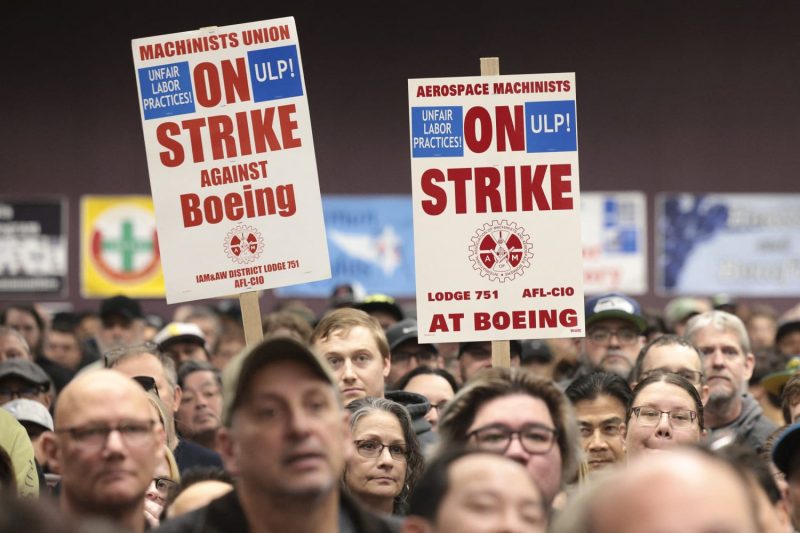In a recent turn of events, Boeing machinists have rejected a new labor contract, leading to a further extension of the strike that has already disrupted manufacturing operations and delivery schedules at the company. This decision comes after months of negotiations between Boeing management and the International Association of Machinists and Aerospace Workers (IAM) failed to reach a consensus on key issues.
The rejection of the new labor contract by Boeing machinists is a reflection of the growing discontent among workers over issues such as wages, benefits, job security, and working conditions. The proposed contract, which included provisions for pay raises and improved benefits, was seen by many workers as insufficient to address their concerns and improve their overall well-being.
One of the primary reasons cited for the rejection of the contract was the lack of guarantees for job security and protections against outsourcing and offshoring of work. With the aerospace industry becoming increasingly competitive and globalized, workers are becoming more vigilant about safeguarding their jobs and ensuring that their livelihoods are not jeopardized by cost-cutting measures that could result in layoffs or relocation of production facilities.
Another area of contention was the issue of wages and benefits, with workers advocating for higher pay and improved benefits to keep pace with the rising cost of living and to ensure a decent standard of living for themselves and their families. The proposed contract, while offering some concessions in these areas, was deemed insufficient by many workers who felt that their contributions to the company’s success were not adequately recognized or compensated.
The rejection of the contract by Boeing machinists has further strained relations between labor and management, with both sides digging in their heels and refusing to budge on key issues. As a result, the strike is set to continue, prolonging the disruption to Boeing’s operations and potentially impacting its financial performance and customer relationships.
In conclusion, the rejection of the new labor contract by Boeing machinists underscores the challenges facing workers in the aerospace industry as they seek to protect their interests and secure fair treatment from their employers. The ongoing strike serves as a reminder of the importance of effective communication, negotiation, and compromise in resolving labor disputes and ensuring a harmonious relationship between labor and management for the long-term success of the company.




























